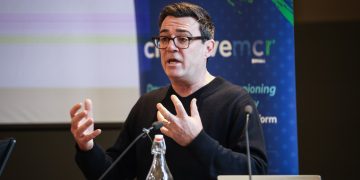London, UK – 19.05.2025 – Effective humanitarian aid hinges on communication. Yet across many parts of Africa, a major barrier remains largely unaddressed: the lack of accessible, localized language support. As humanitarian organizations respond to crises—whether in health, conflict, displacement, or climate emergencies—the importance of delivering services in local African languages is becoming increasingly clear.
Across the continent, over 2,000 languages are spoken, many of which are deeply tied to regional identity, culture, and everyday life. In rural areas especially, local languages—not colonial or official ones—serve as the primary medium for understanding the world. Without clear, culturally sensitive communication in these native tongues, even the best-intentioned aid can be misunderstood or underutilized.
Communication Is Aid
Humanitarian success isn’t just about delivering food, shelter, or medicine—it’s about ensuring communities understand how to access these services, how to stay safe, and how to take agency in their recovery. This is only possible when aid is communicated in the language people know and trust.
For example, during health emergencies such as Ebola or COVID-19, communities that received information in local languages were more likely to follow safety guidelines, report symptoms, and seek treatment. Conversely, misinformation and mistrust often spread in places where official messaging was delivered in unfamiliar languages, reinforcing fears or resistance.
“Language is not just a tool—it’s the bridge between need and response, between crisis and solution,” says a regional humanitarian coordinator. “When we overlook local languages, we risk leaving entire populations behind.”
The Limits of “Official” Languages
While many African countries designate official languages such as English, French, Portuguese, or Arabic, these are often spoken by only a minority—typically in urban areas or among the educated elite. For a majority of the population, particularly in rural regions, languages like Swahili, Amharic, Luganda, or Lingala are far more relevant.
Relying solely on national or official languages in humanitarian outreach can marginalize those who are already vulnerable, compounding inequalities and diminishing the effectiveness of aid.
Localization as a Core Humanitarian Principle
Localizing aid efforts—by employing community translators, engaging native speakers, and adapting content culturally—has been widely recognized as a key strategy in improving humanitarian response. This approach ensures that information is not only understood but trusted.
Organizations are now beginning to invest more in language mapping, community-based translation efforts, and interpretation networks within humanitarian zones. These initiatives not only improve service delivery but empower local communities by valuing their languages and knowledge systems.
Call to Action for the Humanitarian Sector
To truly reach and serve all people in Africa, humanitarian actors must:
- Prioritize the inclusion of local languages in all communication strategies
- Recruit and train local interpreters and cultural mediators
- Translate health, safety, legal, and educational materials into widely spoken indigenous languages
- Partner with language service providers who understand the local linguistic landscape
- Budget for language access as a core component of humanitarian response
Humanitarian efforts that neglect linguistic inclusion risk miscommunication, reduced impact, and community alienation. On the other hand, aid that speaks directly to people—in their language, on their terms—builds trust, encourages participation, and saves lives.
About Applied Lingo
Applied Lingo is a global provider of professional translation services, specializing in multilingual solutions across sectors including humanitarian aid, healthcare, and legal services. With deep experience in African languages, the translation agency supports organizations in delivering culturally and linguistically inclusive communication strategies.
For partnership inquiries or media contact, visit http://www.applied-lingo.com





























